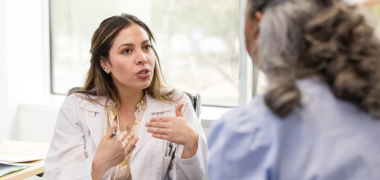
This role has a high level of AI exposure. While some human skills are required, many tasks could be automated or replaced by new technology.
Explore all careersA Clinical Scientist analyses biological samples and develops testing methods to aid disease diagnosis and treatment in healthcare settings.
Get qualified to work as a Clinical Scientist with a course recognised across Australia. Speak to a training provider to learn more.

Browse occupations related to Clinical Scientist



For those interested in pursuing a career as a Clinical Scientist, South Australia offers specialised training designed to equip learners with the necessary skills and knowledge. The region has seen a growing demand for professionals in this critical field, and the opportunities for education reflect this trend. Whether you are looking to expand your qualifications or gain new insights into clinical practice, exploring Clinical Scientist courses in South Australia can lead you to the right program tailored for your needs.
Among the available options, the Bachelor of Laboratory Medicine (Honours) stands out as a popular choice for advanced learners with prior experience in the healthcare sector. This course provides an in-depth understanding of laboratory practices and methodologies, ensuring graduates are well-prepared to take on significant roles within various healthcare environments across South Australia.
Moreover, the study of Clinical Scientists is closely related to a number of fields, including Healthcare courses and Pathology. By exploring these related areas, prospective students can gain a more comprehensive view of the healthcare landscape, which is crucial for successfully navigating their careers in clinical science. This interconnectedness not only enhances the learning experience but also improves employability in a competitive job market.
South Australia boasts reputable Registered Training Organisations (RTOs) that provide these Clinical Scientist courses, ensuring compliance with industry standards and recognition. This guarantees that learners receive quality training that is respected by employers. For those with a strong science background looking to delve into clinical research or laboratory management, these courses present a critical stepping stone towards a fruitful career.
As you consider your options for advancing your professional journey, reviewing the available Clinical Scientist courses in South Australia will provide you with valuable insights. Take the time to explore the offerings and find a course that aligns with your career aspirations. The future in clinical science is bright, especially with well-structured training available in this vibrant Australian state.